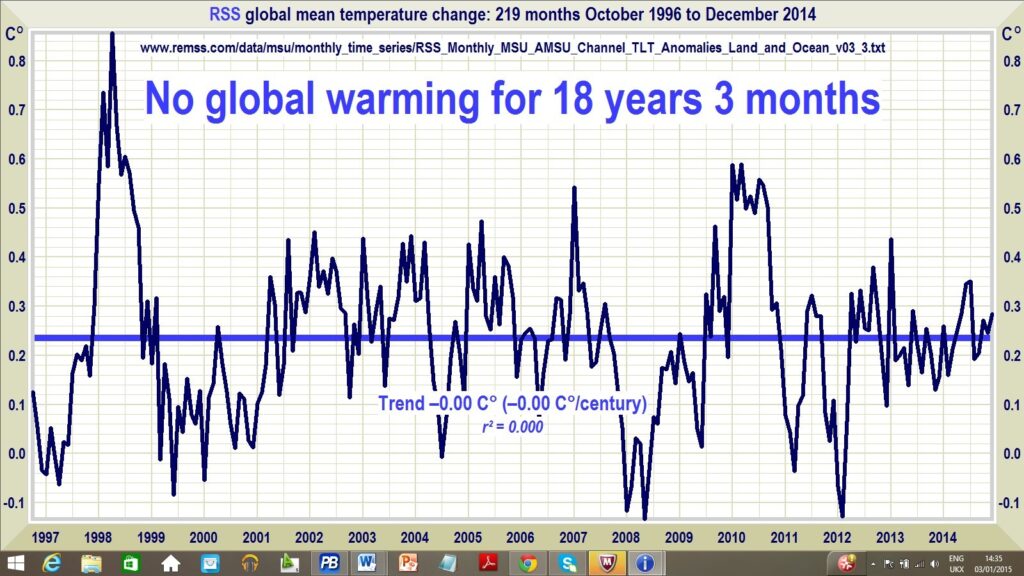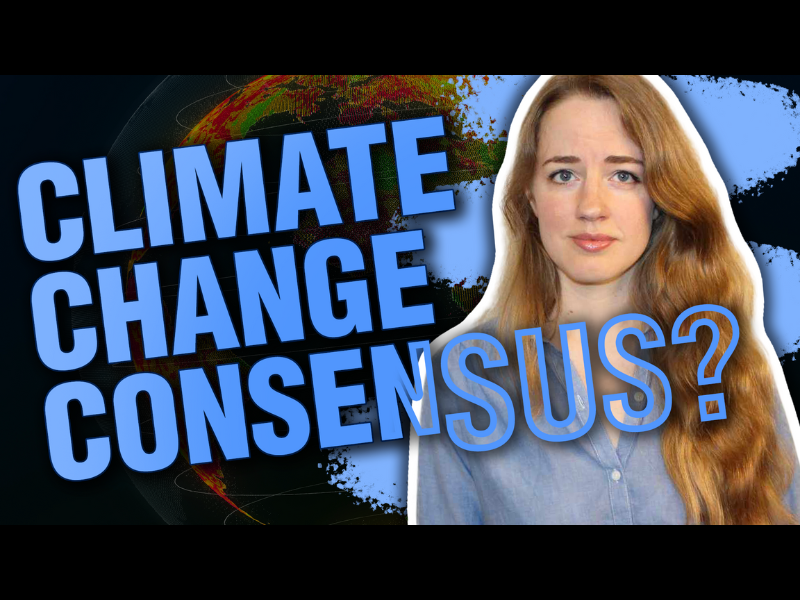[Lord Christopher Monckton of Brenchley dicusses his early climate efforts with Prime Minister Margaret Thatcher and how climate alarmists twisting of science and stiffling debate has made him into the leader among the climate realist movement that he is today.]
Burnett: As an advisor to Prime Minister Margaret Thatcher, you were instrumental in her establishing the Hadley Centre for Forecasting, a climate research center that produces one of the most influential climate models. When did you begin to doubt the theory of catastrophic anthropogenic global warming, and what brought about your change of mind?
Monckton: I was one of the first policymakers in Britain to report scientists’ concerns about the influence of CO2 emissions on global temperature. In 1986 I drew Margaret Thatcher’s attention to the problem, as did Sir Crispin Tickell. Shortly thereafter, on leaving No. 10, I gave what may have been the first scientific explanation of the greenhouse effect on national television, on the Clive James Show.
It was my successor at 10 Downing Street, George Guise, who wrote the 1988 speech in which Margaret Thatcher predicted global temperature would rise by 1 Celsius degree every ten years unless CO2 emissions were curbed. I should have advised her against making any such prediction. In that speech, she announced the funding for what became the Hadley Centre for Forecasting.
Later, however, Margaret realized her concern was misplaced. In her 2002 book, Statecraft, in a dozen pages on “Hot Air and Global Warming,” she records how she came to realize the scare was overblown. She thought scientific evidence ought to be considered carefully, but she had always been skeptical of the extremist viewpoint of the IPCC.
By 1990, she became concerned anti-capitalists were exploiting the issue for purely political ends, and she wrote climate change “provides a marvellous excuse for worldwide, supra-national socialism.”
My own opinion changed in 2006, when a finance house in the City of London asked me to look into the climate question.Investors, the CEO said, were wondering whether to invest in “renewable” energy.
Upon examination, I found the climate problem had been greatly overblown. I reported governments were likely to find the possibilities of taxation and regulation too tempting, and would ignore the science. The CEO telephoned to ask why he should pay any attention to my report. He had consulted a dozen experts, and I was the only one who had told him there was no climate crisis. I referred him to my 40-page report. “Exactly,” he said. “That’s why we’re going with you and not the other 11. You have provided evidence, and plenty of it. They have provided none.”
A summary of my report was published in the Sunday Telegraph in 2006. After it was online for two hours, the Telegraph website crashed when 127,000 people worldwide tried to access the article.
Burnett: As one of the most persistent critics of AGW theory, what do you find to be the most telling argument or set of points undermining AGW?
Monckton: In science, if it doesn’t agree with experiment, it’s wrong. We’ve run the experiment for 25 years since the IPCC first made its predictions in 1990. The rate of global warming since then has been half of what the IPCC had predicted. Its predictions do not agree with the measurements.
The predictions were wrong because modelers used the wrong equation to model the imagined amplification of the temperature feedbacks supposed to triple the small direct warming from our CO2 emissions. Take away that scientifically unwarranted tripling, and only a small, harmless, and beneficial warming will result.
Even if the predictions had been correct, it would be 10-100 times cheaper to let global warming happen and adapt to its adverse consequences than to try to prevent it. If the whole world pursued mitigation policies as costly as the British Government’s subsidies to electric vehicles, 75 percent of global GDP would be consumed in halting global warming.
Burnett: How has your skepticism been received by the UK government, and how do you judge the success of your efforts at home or internationally?
Monckton: I have spent remarkably little time in the UK in the past eight years. Our instinctively totalitarian governing class has swallowed the global warming nonsense hook, line, and sinker. The cost to taxpayers and to our landscape has been immense.
Internationally, though, I was instrumental in persuading Republicans in the United States to attack the bogus science behind global warming, in stiffening the resolve of the Australian Prime Minister to abolish the CO2 tax, and in reassuring the Canadian Prime Minister every penny spent on trying to make nonexistent global warming go away would be a penny wasted.
I have also acted as a lightning-rod, deflecting hateful personal attacks of climate extremists away from skeptical scientists, freeing them to develop alternative theories about our influence on the climate. Science is the better for it.
Burnett: In your years of debating global warming and confronting dogmatic believers in AGW, what have you found most disappointing?
Monkton: The politicization of science by the temperature totalitarians; the frighteningly ready acquiescence in arrant nonsense by much of the academic and political community; the zombie-like zeal with which those who know nothing about climate science proclaim it is settled; the reluctance of climate extremists to debate anyone who knows climate science; and the increasingly frequent demands by climate extremists that those of us who are skeptical should be put on trial for “high crimes against humanity” and executed.






